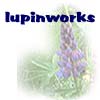Teacher Research[ Journal Entry ] Here's my teacher/action research bias coming through—the important thing as a teacher is to learn how to bring the gaze on yourself and your work—that doesn't mean you aren't relating incidents about situations involving others—in fact it's via these engagements that we begin to see ourselves in new ways. That's the purpose of reflecting—to make visible what's transparent in the work; to bring into the open our assumptions and to begin to be able to see where what we say we believe doesn't match what our actions say. So for example, I'm working hard at creating a negotiated, constructed learning situation for you. Many times each day I find people putting me in the teacher as authority role: "We've run out of paper for the printer." Instead of fixing the situation, I try to help you know how to solve it yourself. There's a subtle difference, between a genuine question which is part of a conversational exchange and the expectation that I will be in charge. That's somehing I'm continually trying to judge. Dorothy asks a question (they're good questions, by the way) but I have to consider, on the spot, are we involved in legitimate conversation, in which case, I reply, or is she looking for the "teacher's" answer. You'll notice that a number of times what I've done is brought in or directed you to something to read that deals with the issue rather than be drawn into that role. I'm constantly trying to judge your questions and comments in terms of whether they're conversational exchanges or whether they're drawing me into the old teacher in authority relationship. I have expertise to bring to our learnaing situation but I don't want to share it from a position of power. I realize I can't give up the power I hold but I can diminish its importance. So what about this musing lets you think about your teaching differently? |
|
© Copyright 2006-2007, . All rights reserved. |

